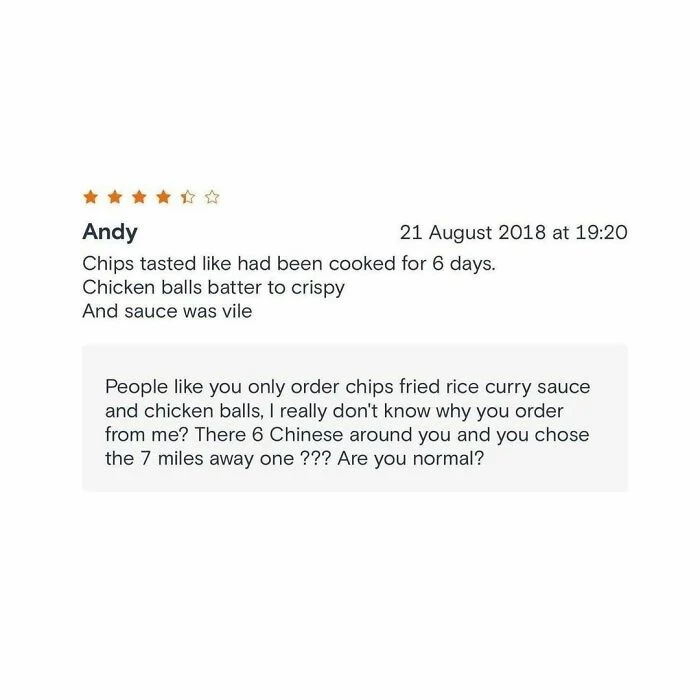Weird Trade
The exchange between the customer and business owner is perplexing on several levels. Firstly, the customer gives a high rating of 4.25 stars to a dish he describes as having “vile” sauce and “too crispy” chicken balls. It’s hard to understand how something can be so unappetizing yet still receive such a favorable rating. Secondly, the business owner chooses to ignore the food complaints and instead focuses on the customer’s location, berating him for not choosing a closer restaurant. This response does nothing to address the concerns raised and instead comes across as defensive and dismissive.

It’s important for both customers and business owners to take feedback seriously and approach it with an open mind. If a customer expresses dissatisfaction with a dish, it’s an opportunity for the business to improve and make necessary changes. On the other hand, responding defensively or ignoring the issue altogether can lead to negative consequences, such as loss of customers and damage to the restaurant’s reputation. As customers, it’s also essential to provide constructive feedback and avoid giving overly positive or negative ratings that don’t accurately reflect our experience. Overall, open communication and a willingness to listen and improve are key to a successful restaurant-business relationship.
